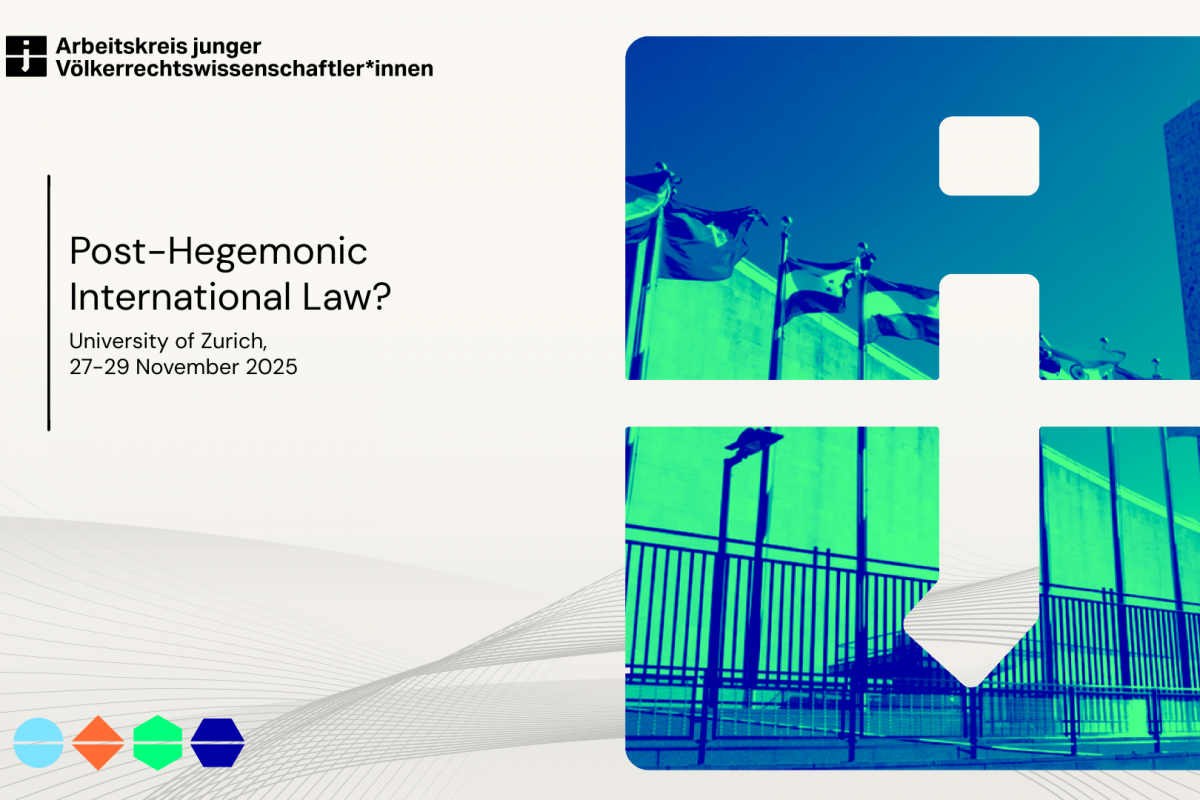It has become a cliché to say we live in a globalized world. This conference is itself evidence of the world’s interconnectedness, as we all come from and are based in different parts of it: Chile, Colombia, Ethiopia, Germany, India, Italy, Mexico, Peru, Switzerland, and the United Kingdom. When we first convened in February 2024 to organize the conference, we all sensed that international law is at a breaking point. If it is to survive, it has to be re-imagined, and for this, legal academia must diversify. Giving space to a wider range of voices enriches the field by introducing more, and different, experiences with international law into the discussions. After all, our experiences shape us and will be reflected in our takes and conclusions about problems, contentions, institutions, or challenges.
A lack of representation, however, is not the only problem that has led international law to its present breaking point. Problems faced simultaneously encompass: a disregard for and disenchantment with international law, crises of legitimacy, and outright hostility. Global South scholars and states consistently point towards persisting double standards and international legal imposition – most do so in good, some arguably in bad faith. In a different way, international law and its institutions have also been challenged by the current US administration, evidenced by certain statements (see, e.g., US Secretary of Defense Pete Hegseth) and concrete actions such as sanctions against the ICC. Other major powers such as Russia have engaged in serious internationally unlawful actions.
In light of the above realities, we asked ourselves: Are we headed toward a post-hegemonic international law? Or are we already living it?
Despite being affected by new shifts in global powers, the great interest in the conference as well as the variety of topics and issues addressed – maybe somewhat paradoxically – confirmed that international law is very much alive. The conference provides a space to reflect on and analyze the potential impact of these changing dynamics on international law. It is also a forum for discussions about international law’s relationship with broader global phenomena and sub-fields, such as digitalization and open science, international trade, migration, data protection, armed conflict, and climate change.
We received more than 200 abstracts from across the globe. From all these abstracts, we identified some recurring themes, allowing us to get a sense of how international law is perceived by young scholars across regions. Gaza and Ukraine were the topics addressed most frequently, both as urgent issues and within the framework of international law’s breaking point. Increasing participation from the Global South was also advocated for to make, negotiate, and think about international law; but most importantly, it was conceived of as necessary to survive the present moment of crisis. Another set of abstracts highlighted the epistemic inequalities resulting from colonial regimes and the need to level inequalities, for example through fuller inclusion in events such as this conference.
As an act of choosing hope over resignation, yet refusing to proceed with business as usual, this conference brings together three keynote lectures and eight thematic panels that collectively map the contemporary terrain of international law, analyzing how international law operates in a moment marked by geopolitical fragmentation, technological disruption, and renewed contestation of global norms. The keynotes trace the international law of contention, the ethical foundations of the resort to force, as well as “the life of the death of International Law”.
Across the panels, contributors address the legal and structural implications of contemporary armed conflict, from the growing military-industrial complex and the legality of unilateral sanctions to the persistence of hegemonic practices of force. Environmental and climate-related interventions consider the rights of nature in regional human rights systems, Indigenous legal orders as counter-normative frameworks for resource governance, and the evolving role of the precautionary principle. Technological transformations also feature prominently, with analyses of online speech governance, changing conceptions of statehood and sovereignty in blockchain and corporate-led standard-setting, and the challenges of AI governance in a post-hegemonic order. Discussions of international trade explore “à la carte” international law in the context of West Africa, corporate accountability in regional human rights mechanisms such as the Inter-American Court of Human Rights, and shifting global economic alignments driven by US–China semiconductor competition.
Further contributions examine the biopolitics of migration control, the protection gaps faced by asylum seekers with disabilities, and recognition-based approaches to dignity in international human rights law. Historical reflections highlight how Armenian legal historiography has navigated and contested dominant understandings of sovereignty since 1918 and revisit the tension between Kantian universalism and Schmittian critiques of humanitarianism. The panels on international criminal law assess how cultural heritage destruction is constructed as a legal wrong, how the conflict in Gaza exposes the limits of international law’s enforcement architecture, and how multipolarity is reshaping international criminal law through renewed universal jurisdiction and regional legal pluralism. The final set of contributions turns to the International Court of Justice’s normative role in a multipolar order, showing how the Court both redeploys traditional legal forms and creates space for counter-hegemonic narratives that resonate with Global South perspectives – developments that reflect broader shifts toward a post-hegemonic international legal landscape.
In all, it could be said that we are indeed living in a post-hegemonic moment, characterized by a fragmentation of power, a vacuum of power, a weakening of the belief in international law, or complete disenchantment with it. But the post-hegemonic moment also offers an opportunity to better understand and do away with the power hierarchies of international law among which the field was construed. For this, we must remain or become open to new and different ideas, practices, disciplines, and languages so that we can approach a fuller understanding of what is at stake, and for whom. “Post-hegemonic” thus also evokes the Gramscian concept of cultural hegemony, by not only addressing the existence, absence, or changing role of superpowers, but also the hegemony within the field of international law and within its institutions. Could this moment lead to an international law that discards the idea of the “West” altogether? Might international law truly become international someday, maybe even transcivilizational? Can international law be re-imagined through more plural, equitable, and historically aware perspectives?
We hope that this conference and its symposium on Völkerrechtsblog will provide new insights, approaches and solutions to the challenges faced by the global community, (re-)imagining new horizons for international law. The experience of organizing this conference together – in a spirit that will hopefully be sustained throughout the conference – has led us to believe that the post-hegemonic moment may not only bring hope amidst absurdity but also open the ground for new possibilities.

Sabrina Ferrazzi is Adjunct Professor of Comparative Legal Systems and Post-Doctoral Fellow in Comparative Private Law at the University of Verona, Department of Law.

Dr. Juan-Pablo Pérez-León-Acevedo is a DPhil candidate in Law and Tutor at the University of Oxford.

Alicja Polakiewicz is a PhD candidate and research associate at Friedrich-Alexander-University

Camilo Ramírez Gutiérrez is an International Humanitarian Lawyer with more than ten years of practical experience, and an Adjunct Professor at Bosque University.

Dr. Garima Tiwari is an Associate Professor of Law at National Law University Delhi, India. Her teaching and research interests include public international law, international humanitarian law, international criminal law and human rights.


Raffaela Kunz is a Postdoctoral Researcher and Lecturer at the University of Zurich, Switzerland. She is member of the Scientific Advisory Board of the Völkerrechtsblog.

